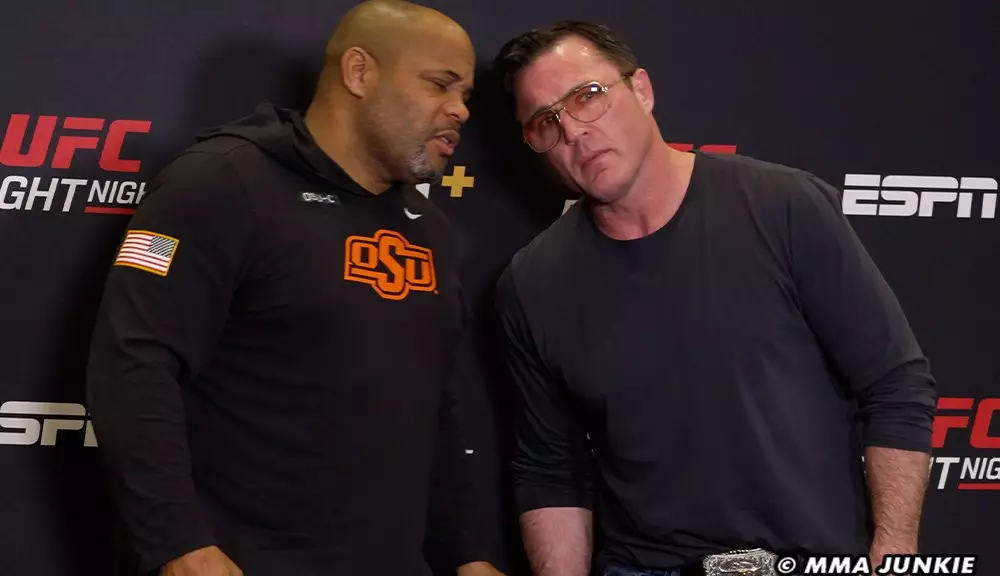For years, fans of “The Ultimate Fighter” (TUF) anticipated not just the dramatic competition among aspiring fighters, but also the climactic battle between the opposing coaches at the season’s end. This tradition, however, faced a pivot with the inclusion of UFC legends Daniel Cormier and Chael Sonnen as coaches in TUF 33. Their presence promised a wealth of experience but also indicated a departure from the norm, as both retired fighters would not step into the octagon against each other. Instead, they proposed an innovative idea that reflects the ongoing evolution of reality television in combat sports.
A Fresh Matchup Proposal
During a media day, Cormier introduced an intriguing proposition: why not have fighters from their coaching staffs face off? Specifically, he highlighted Michael Chiesa, a fighter on his team, and Colby Covington, a team member under Sonnen’s guidance. This suggestion arises from the longstanding rivalry between Chiesa and Covington, which had been simmering for some time, stoked by verbal exchanges and regional pride. Chiesa and Covington, both hailing from the Pacific Northwest, found themselves in a narrative ripe for cinematic conflict—the ideal backdrop for what could be a compelling fight, as Cormier implied.
Sonnen echoed Cormier’s sentiment, emphasizing that such a matchup seems like a logical way to maintain fan engagement and excitement within the show. He expressed disbelief that this fight had not been realized earlier, indicating that the rivalry had built sufficient tension to warrant a special event within the TUF framework. This evolution of the show, predicated on creativity and engagement, suggests that the producers and coaches are receptive to altering traditional formats to keep the audience invested.
Performance Trajectories of Covington and Chiesa
Looking deeper into the careers of both fighters reveals contrasting trajectories. Chiesa, who recently submitted Max Griffin at UFC 310, has found a resurgence in his performance, showing promise with consecutive victories. Conversely, Covington is grappling with recent setbacks, including a loss via injury TKO, which highlights the challenges he currently faces. This dynamic not only heightens the stakes around their potential bout, but also serves as a narrative device for TUF, introducing high drama that keeps viewers at the edge of their seats.
Furthermore, the fight could serve as a litmus test for Covington’s resilience and Chiesa’s growth as a fighter. The implications extend beyond just personal pride; they resonate with fans invested in the careers of both athletes and their respective legacies within the UFC.
The shifting dynamics within TUF and the blending of coaching roles and combat challenges showcase a potential future where traditional formats can adapt to the ever-evolving landscape of mixed martial arts entertainment. Cormier and Sonnen’s willingness to explore alternatives to in-ring combat could signal a broader trend in engaging audiences through innovative storytelling. As the narrative unfolds, one cannot help but wonder if this unorthodox approach will ignite a renewed interest in a series that has influenced MMA broadcasting and fighter development for years. Everything points to a thrilling chapter ahead, one where the lines blur between coaching and competition, creating a fresh and captivating spectacle for fight fans around the globe.

